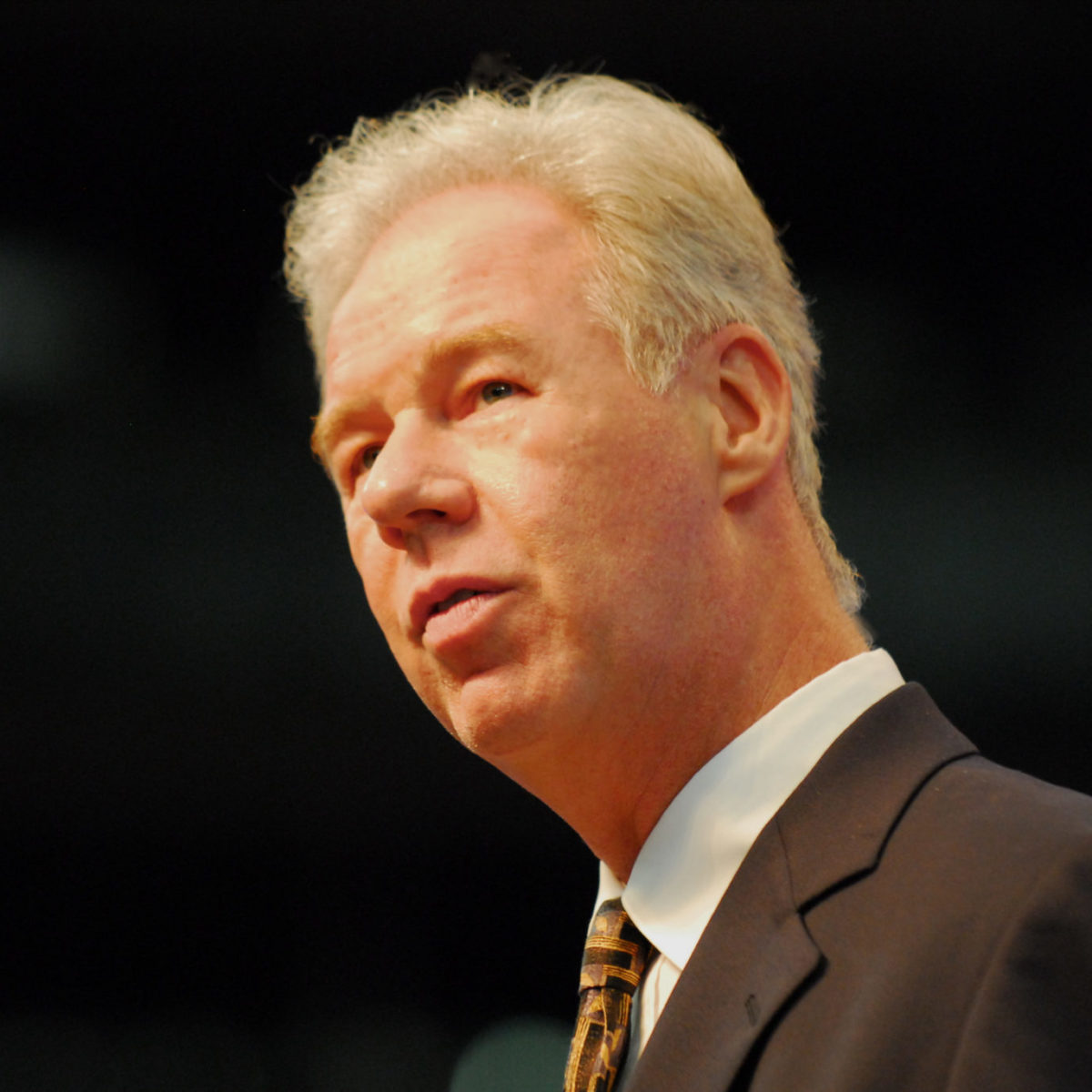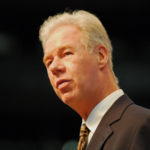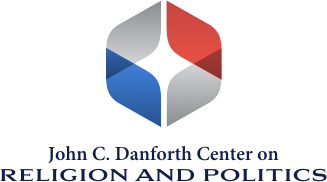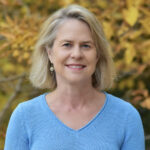An American Conscience: The Reinhold Niebuhr Story Film Screening and Panel Discussion
A film screening and panel discussion with the filmmaker and scholars.

Monday
6:30–8:30PM
Emerson Auditorium in Knight Hall Washington University in St. Louis
One Brookings Drive
Saint Louis, MO
Videos
-
“An American Conscience: The Reinhold Niebuhr Story” Film Screening and Panel Discussion
Martin Doblmeier, Healan Gaston, David Greenhaw (March 6, 2017)
Transcript
 The John C. Danforth Center on Religion and Politics and Eden Theological Seminary are pleased to present to the community an advance screening of a new film, An American Conscience: The Reinhold Niebuhr Story, scheduled to air on PBS this spring. The screening will be followed by a panel discussion moderated by Prof. Marie Griffith, Director of the John C. Danforth Center on Religion and Politics. Panelists will include the filmmaker Martin Doblmeier; Rev. Dr. David Greenhaw, President of Eden Seminary; and Dr. Healan Gaston, Harvard Divinity School. A reception for all attendees will be offered 8:30 – 9:30 p.m.
The John C. Danforth Center on Religion and Politics and Eden Theological Seminary are pleased to present to the community an advance screening of a new film, An American Conscience: The Reinhold Niebuhr Story, scheduled to air on PBS this spring. The screening will be followed by a panel discussion moderated by Prof. Marie Griffith, Director of the John C. Danforth Center on Religion and Politics. Panelists will include the filmmaker Martin Doblmeier; Rev. Dr. David Greenhaw, President of Eden Seminary; and Dr. Healan Gaston, Harvard Divinity School. A reception for all attendees will be offered 8:30 – 9:30 p.m.
This event is free and open to all; no tickets required. RSVPs encouraged to rap@wustl.edu or (314) 935-9345. Your RSVP allow us to send you a parking pass and contact you with any event updates.
About the film
An American Conscience: The Reinhold Niebuhr Story is directed, written and narrated by Martin Doblmeier, the creator of dozens of provocative, award-winning films on faith including Chaplains and Bonhoeffer. Rich in archival material, the documentary features interviews with former President Jimmy Carter, Cornel West, Andrew Young, David Brooks, Susannah Heschel, and a host of internationally recognized historians and theologians.
About Reinhold Niebuhr
Although he may be best remembered today as the author of the famed “Serenity Prayer,” Reinhold Niebuhr — an outspoken American-born pastor, writer, and political activist — remains one of the most influential public theologians of our time. Presidents from Barack Obama to Jimmy Carter have credited his impact on their thinking, as well as John McCain, countless historians, theologians, political thinkers, and Dr. Martin Luther King, Jr., who cited Niebuhr in his “Letter from a Birmingham Jail.”
Niebuhr’s career spanned some of the most tumultuous decades in American history, from World War I through Vietnam, from the Great Depression through the Civil Rights Movement. An early pacifist and socialist, he was closely monitored by J. Edgar Hoover’s FBI throughout his life, but would later serve as a consultant to the State Department during the Cold War.
Niebuhr rose from a small Midwest church pulpit to become the nation’s moral voice — an American conscience — during some of the most defining moments in recent history. His books, Moral Man and Immoral Society (1932), The Nature and Destiny of Man (1941–43) and The Irony of American History (1952), continue to influence theological and political thinking. An American original, his unique insights into human nature and its relationship to political movements and social justice propelled him to speak openly, and often critically, to an America consumed by moral certainty. For Niebuhr the priority was always justice, his guiding principle was hope in a redeemer God, and his weapon was an extraordinary gift for clarity of thought that made him a leading voice of conscience for his time.
About the Panel Discussion Participants
 Martin Doblmeier (Writer/Director) is the founder and president of Journey Films in Alexandria, Virginia, an independent television and film production company that produces award-winning films that explore religion, spirituality, history and social issues. Doblmeier’s work has appeared on most major television networks including PBS, ABC, NBC and The History Channel and others, have won countless awards, and screened at festivals, universities and symposia in the U.S. and abroad. Doblmeier holds a degree in Religious Studies, a Master’s Degree in Broadcast Journalism and two honorary doctorates.
Martin Doblmeier (Writer/Director) is the founder and president of Journey Films in Alexandria, Virginia, an independent television and film production company that produces award-winning films that explore religion, spirituality, history and social issues. Doblmeier’s work has appeared on most major television networks including PBS, ABC, NBC and The History Channel and others, have won countless awards, and screened at festivals, universities and symposia in the U.S. and abroad. Doblmeier holds a degree in Religious Studies, a Master’s Degree in Broadcast Journalism and two honorary doctorates.
Doblmeier’s films include the recent Chaplains (2015), which profiled chaplains from different faith traditions who work in both traditional and unexpected settings; The ADVENTISTS Trilogy (2014), a collection of three films that explore the faith and life of Seventh-day Adventists; Washington National Cathedral: A New Century, A New Calling, about America’s “national house of prayer;” The Power Of Forgiveness, a documentary that explores how the various faith traditions and health sciences are convening around the topic of forgiveness; Albert Schweitzer: Called To Africa, a docudrama on the Nobel Laureate; and Bonhoeffer, about the German theologian and Nazi resister who joined the plots to kill Adolf Hitler that played theatrically and was broadcast on PBS.
 David Greenhaw serves a dual role on campus as both President of Eden Seminary and Professor of Preaching and Worship. Although his work as President of Eden keeps him busy with many administrative matters, he continues to have a passion for teaching. “I am very interested in helping students learn how to think. If they know how to think, then as the world changes, they will be able to think through the changes with it.” David also encourages his students to become better storytellers. “Anyone can tell a story; I want students to know what story to tell and when to tell it.”
David Greenhaw serves a dual role on campus as both President of Eden Seminary and Professor of Preaching and Worship. Although his work as President of Eden keeps him busy with many administrative matters, he continues to have a passion for teaching. “I am very interested in helping students learn how to think. If they know how to think, then as the world changes, they will be able to think through the changes with it.” David also encourages his students to become better storytellers. “Anyone can tell a story; I want students to know what story to tell and when to tell it.”
Dr. Greenhaw is an ordained minister of the United Church of Christ with joint partner standing with the Christian Church (Disciples of Christ). He has served churches in New York, New Jersey, Tennessee and Missouri. He is active in the field of preaching and worship, and has published and lectured extensively in this area.
K. Healan Gaston is a lecturer on American Religious History at Harvard Divinity School and served as a consultant on An American Conscience: The Reinhold Niebuhr Story. The president of the Niebuhr Society, she is the author of “‘A Bad Kind of Magic’: The Niebuhr Brothers on ‘Utilitarian Christianity’ and the Defense of Democracy” (Harvard Theological Review, January 2014) and is currently writing a book on the “prophetic pluralism” of the Niebuhr brothers.



